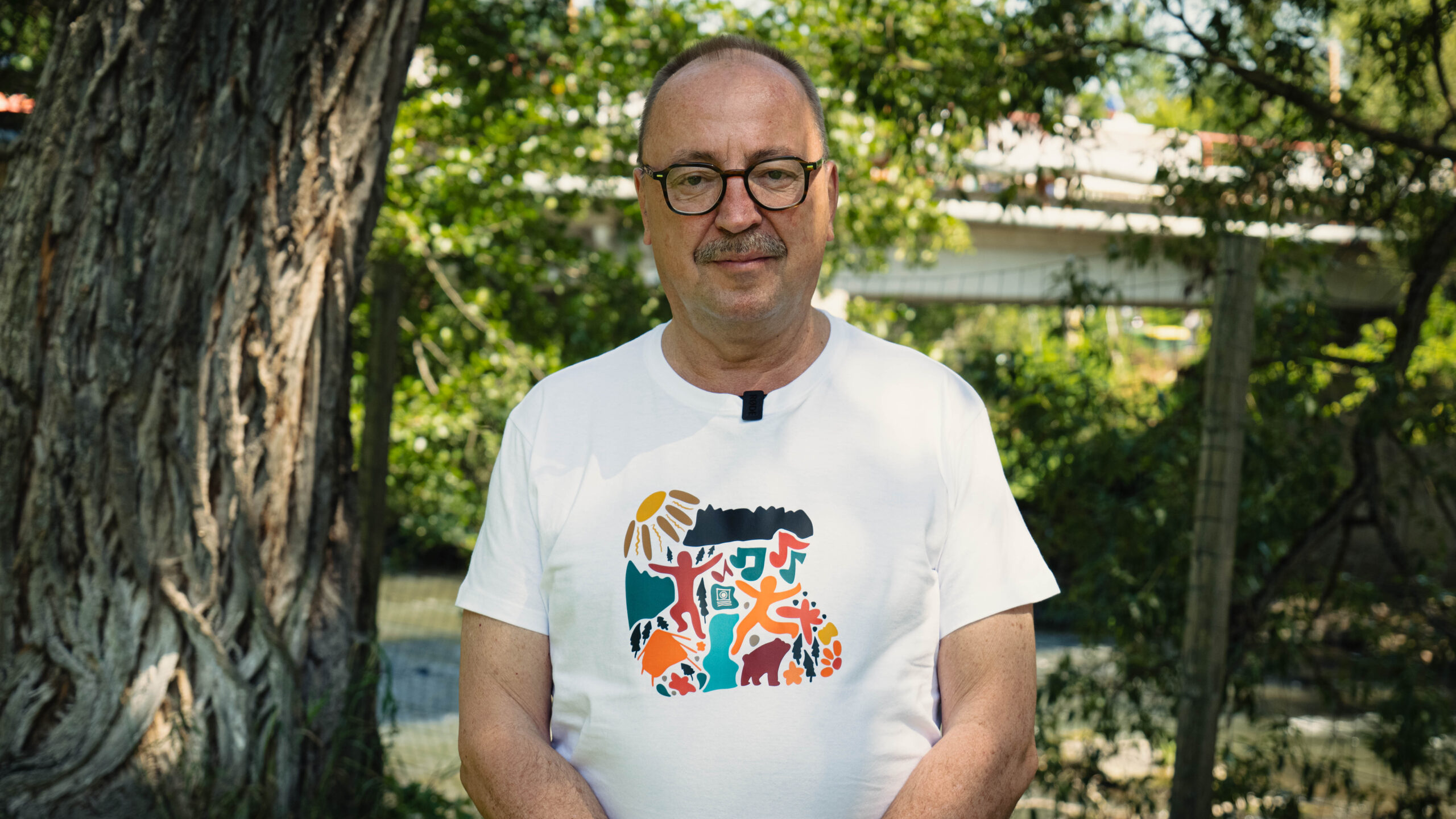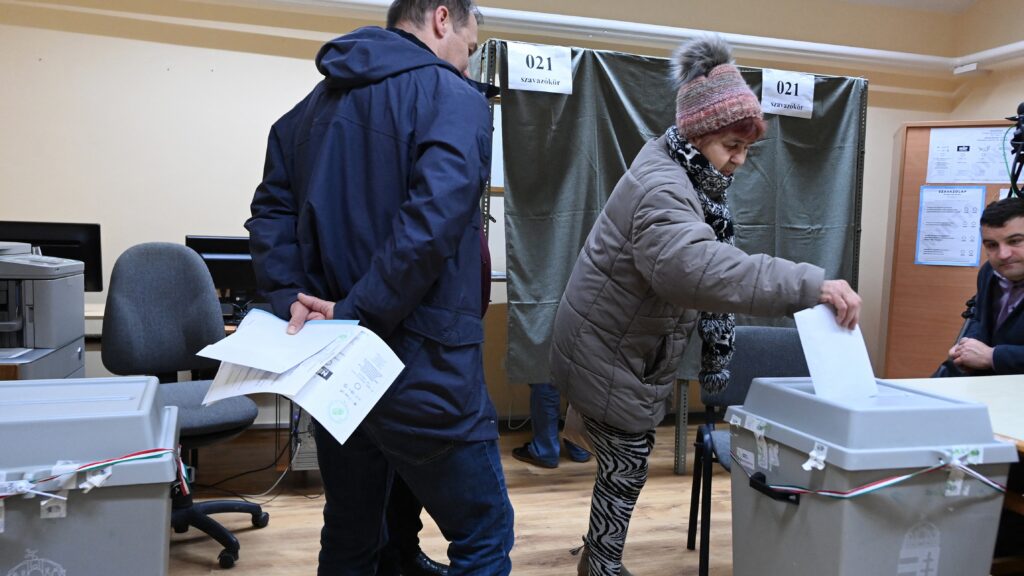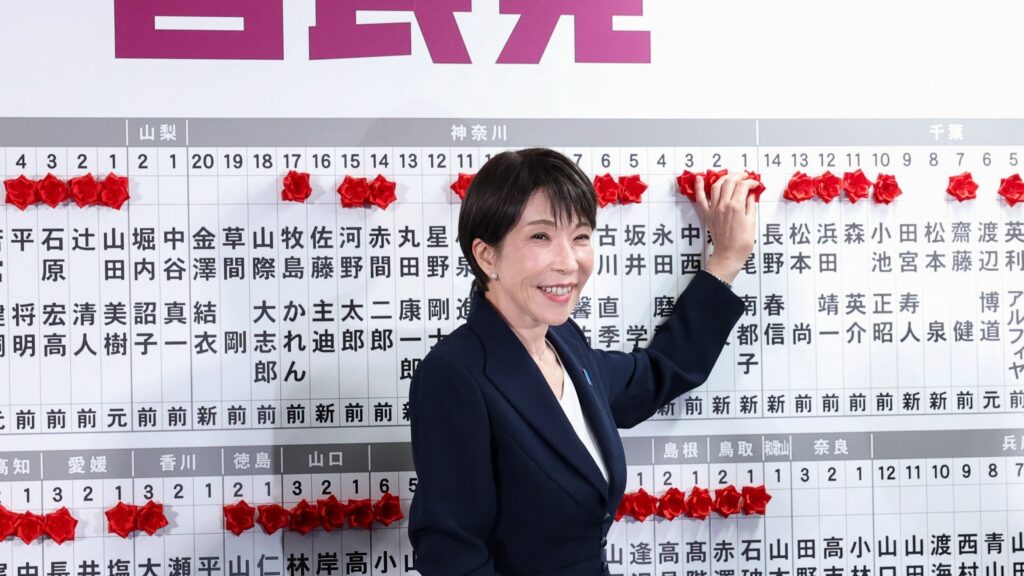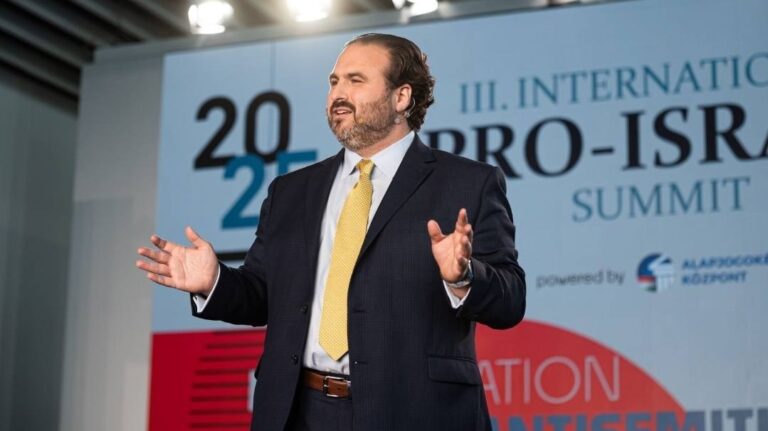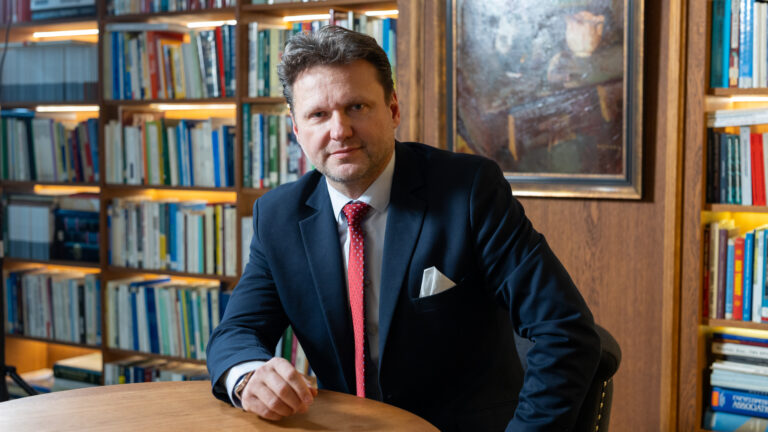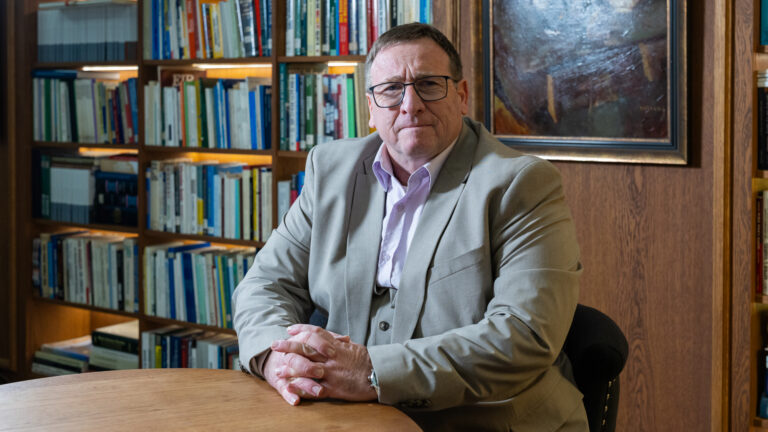Zsolt Németh is a Hungarian economist and politician, a founding member of the Fidesz party, and a Fidesz Member of Parliament since 1990. He served as Political Secretary of State and later as Parliamentary Secretary of State for Foreign Affairs from 1998 to 2002, and again from 2010 to 2014. Németh was Chairman of the Parliamentary Committee on Human Rights, Minorities, and Religion from 1993 to 1994, and Chairman of the Parliamentary Committee for Foreign Affairs from 2002 to 2010, and from 2014 onward.
***
Tusványos is now 34 years old. From this perspective, how has the significance of the festival evolved?
We started it 34 years ago in Transylvania, Szeklerland in a neighbouring settlement called Bálványos. However, after seven years, we outgrew the size of the campsite there, which is why we decided to move to Tusnádfürdő. That is the reason we call it Tusványos. We began it in 1989, during a revolutionary period when a multitude of political organizations emerged. With British journalist David Campanale, who worked for the BBC and was a good friend of mine at the time, we came here, and after having a fantastic political programme and travelling around, we arrived in Kézdivásárhely. At a night party, we decided that we must organize a summer university and festival together, which is a special combination. We are very glad that it has been so successful.
Your chosen motto for this year was: ‘You can count on us.’ Why did you choose that? What is the message for young people?
‘Count on Us.’ That is the title. We believe that today, within the international community, we are facing a very high level of insecurity. The ‘Trump tornado’ is sweeping across the globe, and God knows what will happen in the foreseeable future. The rivalry between the United States and China remains an open question—whether there will be a grand agreement, a total breakdown, or something in between—it is contributing significantly to global instability. Moreover, the conflict between Russia and Ukraine, along with the ongoing war and tensions across the broader Middle East, also affects us.
Under these circumstances, while we may not be able to solve all the problems facing Hungarians, the region, or the world, we represent a political community that is ready to stand by the people. What matters most is that society feels it can trust someone—that they can count on us.
It’s quite unique that the Hungarian Prime Minister delivers a lecture on Hungary’s strategic plans each year at this festival. In the early years, there was some turbulence in Romanian politics in response to this unusual situation. How did you manage to ensure that the Romanian public and political elite no longer react so strongly to the festival’s messages? What steps did you take?
I would like to emphasize that, from the very beginning of this event, Romanian–Hungarian dialogue has played a crucial role, alongside its international dimension. We believed that with the fall of communism, it was high time to establish channels of communication to find appropriate solutions. The continued Romanian presence at Tusványos has significantly contributed to easing tensions over the years. A notable example this year is that the Prime Minister, en route to Tusványos, stopped in Bucharest for an initial meeting with the newly elected Romanian Prime Minister.
‘We represent a political community ready to stand by the people. That is the most important thing’
It seems like a tradition, because he has done it many times before.
We have always been the catalyst for this type of high-level dialogue. Don’t forget the very fact that the local Hungarian party, RMDSZ, is now part of the Romanian government. Obviously, our relations can be compared to a triangle: the Hungarian government, the Romanian government, and the Hungarian minority, which is over a million in this country. All three sides of this triangle must work properly. We are glad that the bilateral relations between Hungary and Romania are developing, that the Hungarian party is part of the Romanian government, and that they can resolve their challenges together. Additionally, after 2010, the relationship between Hungary and the Hungarian minority communities neighbouring Hungary has changed. We have a so-called National Cohesion Policy, which is probably the most successful aspect of the current Hungarian government’s activities.
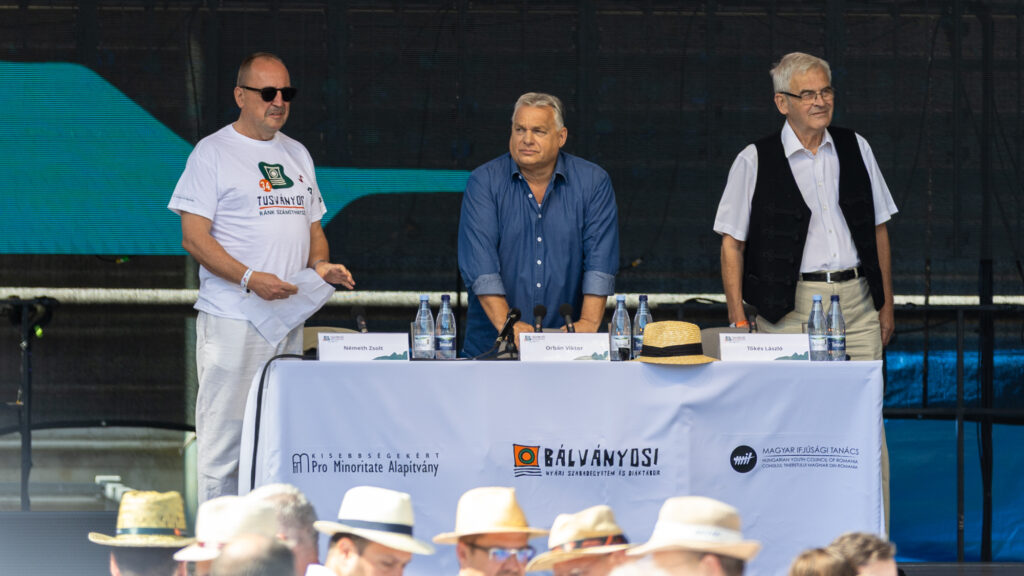
We are staying in the land of Transylvania and Szeklerland, and there has always been the question of autonomy. Do you hope that, in the near future, Romanian politics and parliament will vote to grant Hungarian minorities this kind of status or not?
Around 10 percent of the European population—approximately 50 million people—live as national or ethnic minorities. The vast majority of these communities benefit from some form of autonomy. However, I am convinced that the most important guarantee for the survival of traditional, indigenous national minority communities is autonomy itself. Unfortunately, the chances of achieving this remain low here. That’s why most Hungarian parties—recognizing that Hungary has seven neighboring countries, all with relatively large Hungarian communities—have decided to pursue the establishment of autonomous structures to ensure their long-term survival. Some efforts have been successful. For example, in Serbia, the so-called personal autonomy model allows the Hungarian minority to elect a council with the authority to manage certain minority-sensitive areas such as culture, media, and education. It is a living, functioning example.
Therefore, I don’t think we should be pessimistic. Change may not happen overnight, but the concept is both legitimate and necessary. Moreover, Paragraph D of the Hungarian Constitution explicitly obliges Hungarian governments to support all autonomy initiatives by Hungarian communities living outside Hungary’s borders.
‘After 2010, the relationship between Hungary and the Hungarian minority communities neighbouring Hungary has changed’
Hungary has good relations with its neighbours, with the current exception of Ukraine, primarily due to the situation of minority Hungarians in Transcarpathia. The Hungarian government does not support Ukraine’s planned EU membership. Is the government pursuing the right policy towards Ukraine?
The Russo–Ukrainian war is one of the most sensitive global security challenges. Donald Trump has been very successful in the past half year. He could settle major open questions. Congo and Rwanda have reached a peace agreement as a consequence of Donald Trump ‘s intervention in Africa. However, there is one failure: the Russo–Ukrainian war. I must say that it’s a pity he hasn’t been able to resolve it, and we have been siding with America on this issue. If there is a solution, it will not work without the United States, but it seems they are now trying to find new solutions. Probably, China will enter the efforts, as you have heard. On 3 September, President Xi invited Mr Trump and Mr Putin as well to celebrate the end of World War II in Beijing, which might be a good occasion, preceding the 50-day timeline that the American President has decided upon to end the war and achieve a ceasefire. We support the ceasefire efforts; I think this is the fundamental and most important question. We are convinced this is the only way to stop the bloodshed immediately. If we achieve a ceasefire, then we will have time to negotiate the details of the peace treaty. Some questions are quite resolved, such as NATO membership and related issues. So, there are some questions we can discuss openly, but the most important thing is the ceasefire.
‘If we achieve a ceasefire, then we will have time to negotiate the details of the peace treaty’
We have a Hungarian community in Ukraine. We must pay attention to their situation, and the kind of Ukrainian nationalistic tones over the last ten years have created a bitter relationship between the Hungarian community and the central government. We must side with the Hungarian community. It is not just a national obligation, but we are convinced that this is based on international law, which states that minority rights need to be respected. In the European integration process, we imposed very serious conditions. We have been able to incorporate the minority action plan into the European Union negotiation strategy. The minority action plan is the solution. If Ukraine wants to become a member of the EU and draw closer to the European Union, we will pay attention to these clauses that relate to the rights of national minorities.
In a recent interview, you mentioned that Pax Americana 2.0 has arrived with Trump’s second administration, rather than a new world order led by China and the BRICS countries. What do you mean? Is the Hungarian connectivity strategy no longer important? If America remains hegemonic, will the Hungarian–Russian and the Hungarian–Chinese connections be less significant in the future?
You know, there is a grand strategy that Hungary is trying to create. It was initiated by Viktor Orbán a year ago, and we have made efforts in this direction over the past year. It’s crucial to follow international developments and adapt to them. Over the past year, Donald Trump won the American elections, and since January, an incredible Trump tornado has swept across the globe. Before that, we were discussing the new multipolar world order, but now we are focusing on the strengthening of US hegemony, which is centred around the United States’ tariff diplomacy and a strong emphasis on security, such as the 5 per cent NATO expenditure. We can see that no other country can implement such a strategy; only the United States has been able to do so in the last six months.
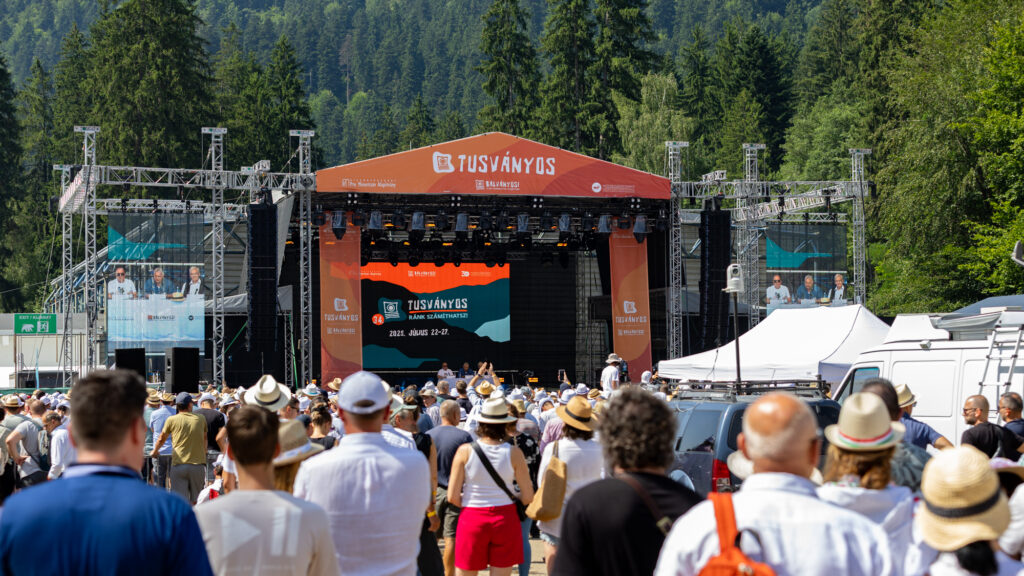
The crucial question is China, because China is a real challenger to the United States, and we don’t know if there is going to be a grand agreement or not. I am convinced that there is an intention on both sides to have a grand agreement. If the agreement is reached, it will result in a power-sharing arrangement between the United States and China, creating a new situation for all of us. If not, it may be problematic, and a high level of instability may enter international politics. The Hungarian attitude towards these developments must be flexible. I don’t see a need to change our approach concerning cooperation with China. Even the strongest hawks in the United States don’t treat China in the same way they treat Russia.
‘We were discussing the new multipolar world order, but now we are focusing on the strengthening of US hegemony’
Russia is a separate question, because it now seems clear that Russia is responsible for the continuation of the war. Until now, it was not so evident. There have been statements on behalf of Ukraine and some European Union players, which hinted that they would probably like to continue the war. But now it seems that Ukraine has signed over the conditions created by Donald Trump, and against the will of Ukraine even hawkish European states cannot continue the war against Russia, so the sole responsibility lies on Russia ‘s shoulders for the continuation of the war. I think this will create a situation in the near foreseeable future where the US has a pro-peace strategy and Russia has a pro-war strategy. This will be the real alternative. All the international players must decide which side they will stand with, and it will have consequences for every country. I hope the war will end soon, and then we might enter a new era, but we are not there yet, unfortunately.
One last question: is Hungary isolated? Some say that Hungary’s alternative Russia policy within the European Union, along with its quarrels with Brussels, has left the Orbán government somewhat isolated among Western countries. Others, however, argue that Prime Minister Orbán’s friendship with Donald Trump is making Hungary relevant once again. Which is it?
You know, in the past year, we held the EU presidency and hosted major international events, like the summit of the European political community, welcoming 46 heads of state and government. We did not feel isolated.
‘We are not willing to leave the European Union. We are not against Europe—far from it’
As you mentioned, the close relationship between Donald Trump and Viktor Orbán—as well as between the United States and Hungary—reflects a fundamentally new approach. However, we can also observe growing polarization in the Western world regarding both Mr Trump and Mr Orbán, and this polarization is shaping international relations as well.
Fundamentally, I believe that the roles Donald Trump and Viktor Orbán are playing represent a clear and honest approach to sensitive issues, and I am convinced that the European patriotic movement will gain strength behind this kind of leadership. We are not willing to leave the European Union. We are not against Europe—far from it. We want to influence—I wouldn’t say conquer—but influence its future. The Hungarian people have always been European, and we will remain European.
Listen to the full podcast below:
Related articles:

